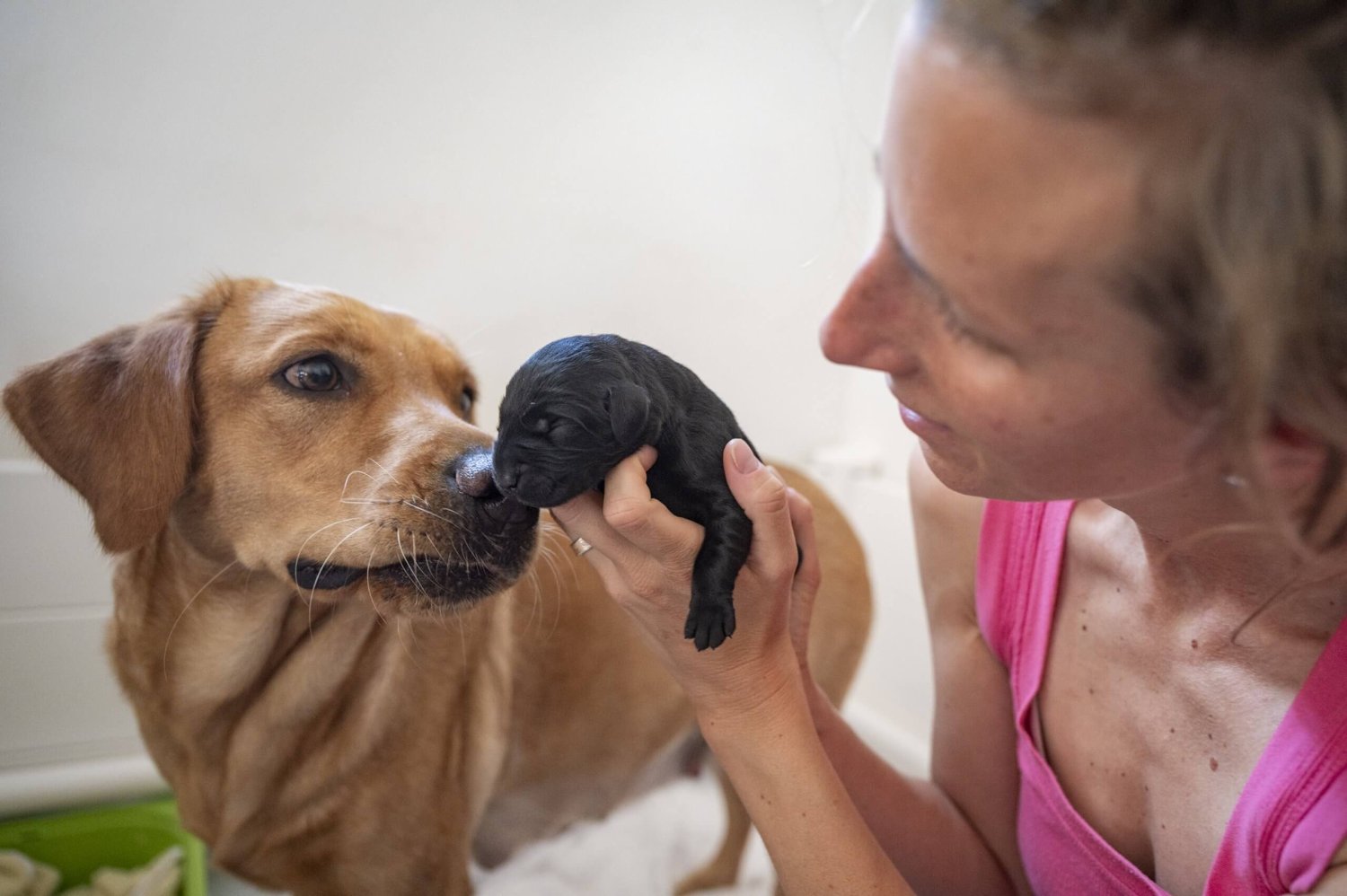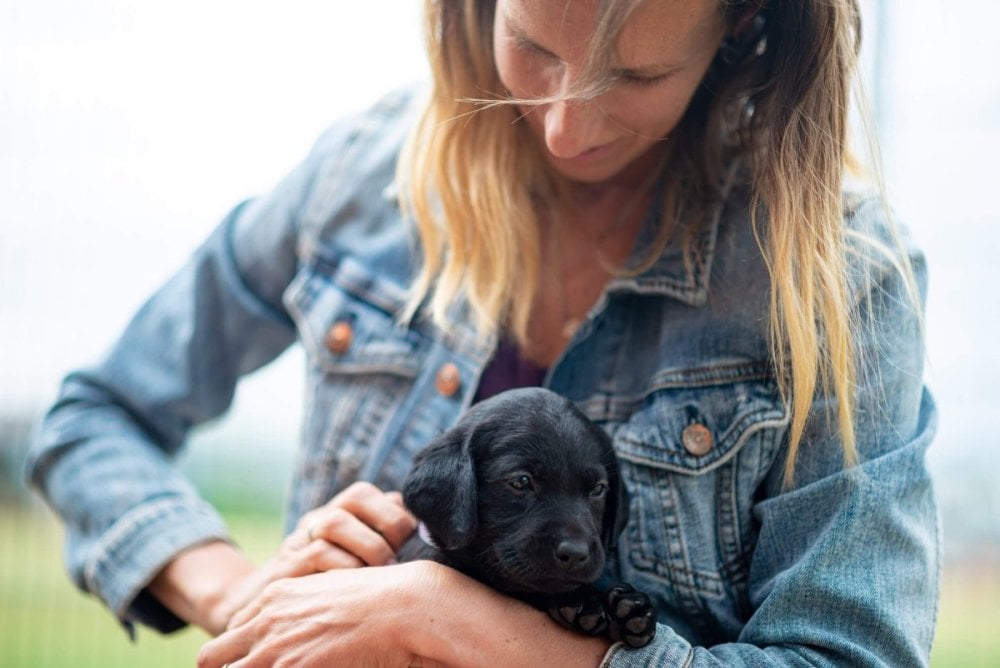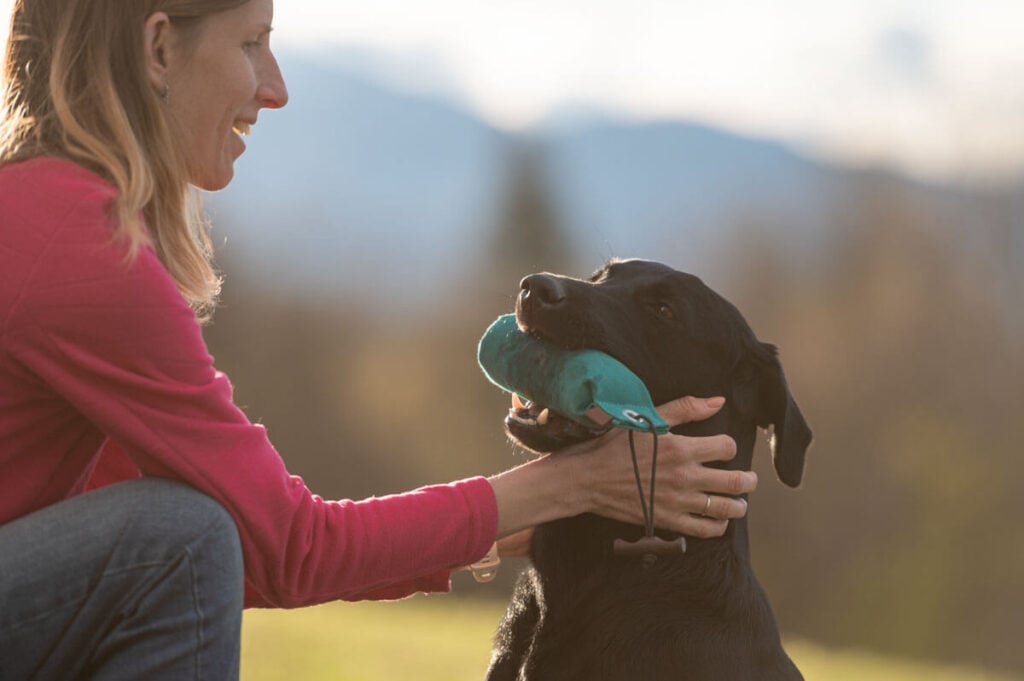Labrador Retrievers are among the most popular and beloved dog breeds in the
world—known for their intelligence, loyalty, and gentle nature. But behind every well-
adjusted, happy Labrador is a breeder who laid the foundation for that success.
Unfortunately, not all breeders are created equal. Choosing where your puppy comes from can
make the difference between welcoming a well-balanced, healthy companion into your
life—or struggling with health and behavioral issues for years to come. Here’s why finding a
good breeder is absolutely crucial when looking for a Labrador Retriever.
1. Thoughtful Breeding Starts with Healthy Parents
A responsible breeder doesn’t just pair two Labradors and hope for the best. They carefully
select the mother (dam) and father (sire) based on health, temperament, and compatibility.

Common Genetic Health Tests
All breeding dogs should be tested for common genetic health issues in Labradors, such as:
Skipping these tests—or ignoring problematic results—can result in puppies suffering from
lifelong health issues. A good breeder is committed to preserving the breed’s health, not just
producing more puppies.
2. Character Counts: Temperament Is Not a Coin Toss
Labradors are famously friendly, but good temperament isn’t guaranteed just because of breed
reputation.
Responsible breeders spend time understanding and selecting for stable,
affectionate, and trainable personalities. They don’t breed nervous, aggressive, or overly
hyper dogs—because those traits can easily be passed on to the puppies.
Poorly bred Labradors can grow up to be anxious, reactive, or unmanageable, regardless of
training. A good breeder prioritizes temperament as highly as physical health.

3. Care and Socialization from Day One
The first eight weeks of a puppy’s life are absolutely critical to their development. This is
when they learn how to interact with the world, with people, and with other dogs. A good
breeder creates a rich, stimulating environment that supports healthy socialization.
Early Socialization Includes:
These experiences shape the puppy’s brain and behavior for life. Puppies who miss out on this
early development can grow up fearful, poorly socialized, or hard to train.

4. Care for Both Mother and Puppies
In a well-run breeding program, the mother’s health and well-being are just as important as
the puppies’.
A calm, cared-for mum raises calm, confident puppies. She’s given time to
recover between litters, kept in a loving environment—not a kennel—and supported through
birth and nursing.
A breeder who neglects the mother or separates her too soon is compromising the entire
litter’s development. Puppies learn so much from her in those first weeks: boundaries,
calmness, and confidence.
5. Preparing Puppies for Real Life
From the day they’re born, puppies need to be prepared for the world they’ll live in. A great
breeder doesn’t just feed and clean them—they raise them.
Early Training and Stimulation
These early lessons give puppies a massive head start in life.

6. The Outcome: Balanced Dog or Lifelong Problems
When you choose a responsible breeder, you’re not just buying a puppy—you’re investing in
your future.
A well-bred, well-raised Labrador is more likely to be:
By contrast, a poorly bred puppy might struggle with chronic health issues, severe anxiety,
aggression, or reactivity—things that can be heartbreaking to manage and often require years
of training and expense.

Final Thoughts: Do Your Homework
Finding a good breeder takes time, research, and sometimes patience. But it’s so worth it.
Look for breeders who are transparent, health-test their dogs, socialize puppies properly, and
genuinely care where their pups go.
Red Flags to Watch Out For
Avoid breeders who:
Your Labrador will be part of your life for over a decade. Make sure their story starts in the
right hands.



